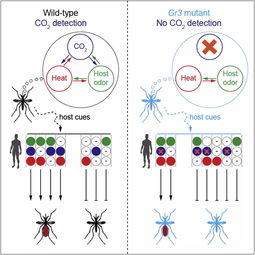
Allergy to Mosquito Bites: A Comprehensive Guide
Are you one of those who dread the summer months due to an allergy to mosquito bites? If so, you’re not alone. Mosquito bites can be more than just an itchy annoyance; they can trigger a severe allergic reaction in some individuals. In this article, we will delve into the details of this allergy, its symptoms, causes, and effective treatments.
Understanding the Allergy

When you have an allergy to mosquito bites, your immune system overreacts to the saliva of the mosquito. This saliva contains proteins that can cause an allergic reaction in sensitive individuals. The severity of the reaction can vary from mild to severe, and in some cases, it can be life-threatening.
Common Symptoms

The most common symptoms of a mosquito bite allergy include:
| Symptom | Description |
|---|---|
| Itching | Intense itching around the bite area |
| Pain | Localized pain or stinging sensation |
| Swelling | Inflammation and swelling around the bite |
| Redness | Reddish appearance of the skin around the bite |
| Hives | Itchy, raised welts on the skin |
| Wheezing | Difficulty breathing, especially in severe cases |
| Swelling of the throat | Life-threatening condition, requiring immediate medical attention |
Causes of the Allergy

Several factors can contribute to the development of a mosquito bite allergy:
-
Genetic predisposition: If your family members have allergies, you are more likely to develop one too.
-
Environmental factors: Living in areas with a high mosquito population can increase your risk.
-
Previous exposure: Having been bitten by mosquitoes in the past can make you more susceptible to an allergic reaction.
Diagnosis and Treatment
Diagnosing a mosquito bite allergy is usually straightforward. Your doctor will examine the bite and ask about your symptoms. In some cases, they may perform a skin test to confirm the allergy.
Here are some treatment options for a mosquito bite allergy:
-
Antihistamines: These medications can help relieve itching and reduce inflammation.
-
Corticosteroid creams: These can be applied topically to reduce swelling and inflammation.
-
Oral corticosteroids: In severe cases, oral corticosteroids may be prescribed to reduce inflammation and swelling.
-
Immunotherapy: This involves exposing the individual to increasing amounts of mosquito saliva to desensitize the immune system.
Prevention Tips
Preventing mosquito bites is the best way to avoid an allergic reaction. Here are some tips to help you stay bite-free:
-
Wear long-sleeved shirts and pants, especially during peak mosquito hours (dawn and dusk).
-
Use insect repellents containing DEET, picaridin, or oil of lemon eucalyptus.
-
Remove standing water from your property, as it serves as a breeding ground for mosquitoes.
-
Install screens on windows and doors to keep mosquitoes out.
Living with a mosquito bite allergy can be challenging, but with proper treatment and prevention measures, you can minimize your discomfort and reduce your risk of a severe allergic reaction.





